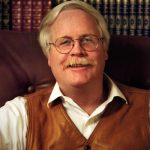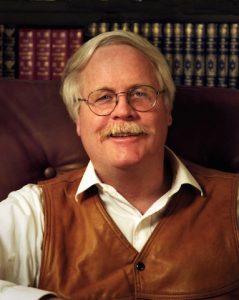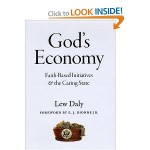Hillsdale, MI. In the early 1940’s, what was left of Christian Europe rallied around Christian Democracy. German Nazi armies occupied most of the continent. A majority of German Protestants had at least accepted the pro-Nazi National Church. Meanwhile, many conservative Catholics had fallen into unsavory alliances with collaborator regimes such as Vichy France. Heroic acts of resistance among leaders, such as Bishop von Galen’s denunciation of the Nazi euthanasia project and the Confessing Church of Dietrich Bonhoeffer, were relatively rare
The real energy came from young Europeans, distraught by the world bequeathed to them and determined to restore a Christian order. In Germany, they launched nascent groups like the White Rose society. Many paid with their lives. In France, a young Catholic philosophy student, Gilbert Dru, drafted a manifesto for postwar Christian Democratic work. He stressed the transformative quality of true Christian action, where the whole person would become engaged, not as a cog in a party machine, but as a militant rebuilding France on radical Christian principles of justice and love. In 1944, he was executed by the German Gestapo in Lyons.
Their example and their spirit gave real energy to the Christian Democratic parties that claimed power in Italy, West Germany, the Netherlands, and France in the years immediately following the war’s end. For a decade and a half, this movement proved to be something more than politics as usual. It saw “freedom with justice” as “artificial, deceptive and hypocritical,” especially when used to justify the inequities spawned by a “free market.” It also saw that “justice without freedom leads to tyranny.” (Etienne Borne). In addition, these parties understood that human flourishing could come only as the individual was embedded in social bodies such as family, village, labor association, and parish. The purpose of government was to encourage and protect such natural entities, not displace them.
In his book God’s Economy, Lew Daly does a splendid job of telling the story of Christian Democracy, from its Nineteenth Century origins among Christian writer-activists such as Bishop Wilhelm von Ketteler and Abraham Kuyper to its coming of age after World War II. More surprisingly, he shows how Christian Democratic ideas gave intellectual coherence to the Faith Based Initiative of the George W. Bush administration.
I am particularly delighted to see the attention that he gives to Robert Nisbet’s critique of revolutionary liberalism in The Quest for Community. This book is regularly included in the Modern American Conservative Canon; yet I suspect that this is true only because most contemporary, self-styled “American conservatives” have not read it (so too with Richard Weaver’s Ideas Have Consequences, another part of the “Canon” that has nothing in common with Newt Gingrich or Sean Hannity). Drawing to some degree on the earlier work of Karl Polanyi (The Great Transformation), Nisbet drives home the fact that the liberal free market actually depends on centralizing government and the use of the state to suppress the peasant commune, local customs, family and community property, and even family life itself. As Daly summarizes, both private economic power and state power threaten the natural order of family, church, and community.
I also commend Daly’s recognition of the inner contradiction of the Bush administration’s Faith Based project. It sought to implement half of the Christian Democratic project—funneling social services through churches and church agencies—while ignoring the vital other half: protecting families and communities from “the power and volatility of unlimited markets.” Given the nature of the Republican Party, which in any conflict predictably defers to the interests of Wall Street, this was probably inevitable. Yet the contradiction was also encouraged by those “Christian neoconservatives” who enthused over “democratic capitalism” and who had influence within the Bush White House. One result was to heighten the risk that “faith based initiatives” would simply become another pool of government money, going to those groups with the most effective grantwriters or the best political connections.
Might authentic Christian Democratic principles take root in America? Given current party alignments, it seems unlikely. The Republican coalition of Wall Street and “Traditional Values” is a non-starter. So is the Democratic alliance of Social Reform to Equity Feminism and the Sexual Revolution. Daly is right to point in his book to the older, pre-1965 political alliances, when the Democratic Party could claim, with some legitimacy, to be the “pro-family” Party. The Maternalists who dominated the crafting of Democratic domestic policies in the 1920-60 period favored the male breadwinner/ female homemaker/ child rich family; opposed working mothers, day care, and equity feminism; and condemned birth control and abortion. Another key figure in all this was Father John Ryan, Catholic social ethicist, proponent of the Living Family Wage, and an influential architect of the original Social Security system (when it had a moral compass and a sense of limits). While I can easily imagine a reunion of the Wall Street-dominated Republican Party with the Equity Feminists (which existed from 1920 to 1964 and which was always a more natural bond), it is hard to imagine a similar event that would produce a more thoughtful, more Christian “Democratic Party” linking social reform to conventional Christian family and sexual ethics and a defense of small property and localism.
Then again, stranger things have happened. Some members of the Democratic Coalition—notably African-Americans and Hispanics— do report highly conventional views regarding family and sexual ethics (even if behavior can diverge). And the economic and social interests of white feminists sharply are sharply at odds with those of virtually all people of color. Moreover, the white middle class has been savaged of late by economic instability. Perhaps out of these fissures and the current populist turmoil, someone might be able to craft a new, more coherent, and more promising Christian and Democratic coalition.








16 comments
Albert
Mark, if you’re in Virginia, I can do my best to help you finish it.
Mark Perkins
Personally I think you shouldn’t be able to get a high school diploma in these United States without having read ‘Democracy and Populism,’ and you shouldn’t get a history degree without having read ‘Historical Consciousness.’ But then I’m more than a little partial to John Lukacs.
I’ve always loved the label of Old Granddad, though I can’t say I love the contents too much (the same goes for Old Crow, of which I drank my share in my [recently completed] college days but hope not to do much of in the future… it seems like if you put “old” in the name, you’ve got to come up with a decent looking label). I’m almost through my current bottle of Wild Turkey 101 and a little weary of it. I don’t drink excessively (very often) so a bottle goes a long way.
What I’m saying, then, is that Dr. Carlson ought to place his hope for America in reading Lukacs and appreciating bourbon.
Kevin H
Cheeks, et al.,
Old Grandad is a fine bourbon that I was introduced to some time ago. After that, I found a much finer pleasure in the single malt of the barley, rather than the American mixture.
As for Weaver, Kirk, and Nisbet, and Aquinas, Blackstone, and Hooker; I say introduce the former to younginz to get them excited. It will set off a firestorm in their minds of which they won’t be able to quell until they are forced to contemplate the latter. Speaking from personal experience at least.
Albert
Mr. Cheeks, as a bona fide, Fed-approved and non-self-hating member of a minority group of color, I think your comment is fine. Except for the neglect of Wild Turkey 101.
Rob G
“Why aren’t there more conservatives rediscovering Aquinas or Blackstone or the judicious Hooker?”
Heck, I’d be happy if they rediscovered Weaver, Kirk and Nisbet…
Rob G
Bob, yes, I agree with you in that regard. As a political/social movement the Left is a bad thing. But this doesn’t mean that all ideas that originate there are necessary bad. That was my point.
Re: bourbon. I had a bad experience with Manhattans some years ago and can no longer go near the stuff. Now I gravitate towards Scotch (blends–single malts are above my pay grade), Canadian whiskeys, and Bushmill’s.
Wessexman
“By the way, and this is off subject, but what’s with all the burgeoning interest in Ayn Rand among mainstream conservatives? Seems like ya can’t go anywhere these days without someone bringing up “Atlas Shrugged.” That’s a very bad sign, IMO.”
A man after my own heart. Hell I think I’ll just go ahead and make another blunt diagnosis by stating that Rand has nothing to add to the traditionalist conservative movement. Why aren’t there more conservatives rediscovering Aquinas or Blackstone or the judicious Hooker?
Mark Perkins
I like bourbon, and not (only) because I like Percy. I like Maker’s Mark, Bulleit, and Knob Creek. I’ve never had Buffalo Trace, but I’ll try it out on your recommendation. I’ll tell them Bob sent me. I should add that I’m not above cheap bourbon.
I am unemployed and listless for another six weeks. I’ll be sticking around.
PS: I still think “the minority community” exists outside of “the ‘hood.'”
PPS: It’s still Holy Saturday for me. I did not attend a vigil. And what happened to midnight vigil anyway?
Bob Cheeks
Mark, I don’t watch TV and I suggest you turn it off as well. Predicated on your comments Mark, you might want to consider a.) more exercise, b.) more rest, c.) drinking more alcohol, allow me to suggest Maker’s Mark or Buffalo Trace for a decent bourbon.
Rob G: My point is that the “Left” or the “commie-Dems” are a political organization that is intrinsically evil, as in manipulated by Satan, as in sinful…you can not advocate the slaughter of your own kind and be a human being. Now, Rob G. I’ve read your ‘comments’ and I know you understand what I’m saying. What part of the above sentence don’t you understand?
Happy Easter!
Rob G
~~~his inclination to look to the Left, if not for succor, then in nostalgia for the old days when the Democrats cared for “da workin’ people” sends something of a chill down my spine.~~~
Bob, the Left isn’t always wrong, at least in its inclinations. Its diagnoses are sometimes correct, even if its treatment plans tend to be problematic. Hell, even Marx got some things right about capitalism, no?
By the way, and this is off subject, but what’s with all the burgeoning interest in Ayn Rand among mainstream conservatives? Seems like ya can’t go anywhere these days without someone bringing up “Atlas Shrugged.” That’s a very bad sign, IMO.
John Médaille
What the minority communities need to lose is their “leadership,” which is built on building a culture of dependency. Absent that, they are, if anything, hyperconservative, in the old and true sense of loyalty to place and family.
Mark Perkins
Bob says,
‘I find Dr. Carlson’s suggestion that the minority community represents some sort of hope for a “more Christian “Democratic Party” linking social reform to conventional Christian family and sexual ethics and a defense of small property and localism,” an indication that he is more idealist then realist and might want to spend a little more time in the “hood” and less time in the suburbs.’
I say,
Your comment about ‘the’ minority community is pretty surprising here where place and particularism are emphasized. Perhaps you’ve watched too much of the Wire and need to meet some minorities who don’t live the ‘hood’ (they exist! I promise!). Your comment strikes me as neither realistic nor idealistic.
D.W. Sabin
Wall Street as an exclusive club for Republican Power Brokers lording it over Democrat outsiders is as sturdy a myth as the one about the mythological “Free Market”. Not that a completely unfettered market in primacy over all other concerns is altogether prudent but we should at least acknowledge that there has never been a Free Market, either internal or external to a Modern State. There are Markets and they shall always be Byzantine.
But Cheeks, we all have our own idealist notions we like to curl up in and suck our respective left or right thumbs to. It would get awfully banal if’n we dint. Perhaps this is the root of the confusion today. We’ve worn our thumbs out and have resorted to the big toe. Anyone familiar with this knows that to suck ones toes, the right thumb sucker must resort to the left toe and the left thumb sucker vice versa. The Ergonomics of personal toe sucking being what it is.
Pondering this issue further and recovering my mount, it seems to me that an in-depth comparative study of European Politics and governance and its American counterpart would be interesting. Do any of the folks commenting know of such a beast?….comprehensively and entertainingly rendered (hence not authored by either an economist or political scientist).
Bob Cheeks
Allan Carlson is a favorite. That said, his inclination to look to the Left, if not for succor, then in nostalgia for the old days when the Democrats cared for “da workin’ people” sends something of a chill down my spine.
I find Dr. Carlson’s suggestion that the minority community represents some sort of hope for a “more Christian “Democratic Party” linking social reform to conventional Christian family and sexual ethics and a defense of small property and localism,” an indication that he is more idealist then realist and might want to spend a little more time in the “hood” and less time in the suburbs.
There will be no salvific or restorative movement from a political party, the Democrat Party, that advocates the slaughter of infants, the restriction of health care to the elderly, the redistribution of wealth, confiscatory taxation, and the expansion and increased empowerment of the central gummint.
We’re going to be lucky to get out of the mess our nearly documented president is causing without a revolution.
Mark Perkins
If, as Wendell Berry suggests, the truly important divide is (or is becoming) between those who are unthinking believers in technology and Progress and those who are not, I too wonder and worry about what will come of current party divisions. I hope, too, I should add.
—
I know this was an absolutely minor point, but it caught my eye.
“Heroic acts of resistance among leaders, such as Bishop von Galen’s denunciation of the Nazi euthanasia project and the Confessing Church of Dietrich Bonhoeffer, were relatively rare.”
I do not mean to minimize Bishop von Galen’s heroism. His opposition to euthanasia was indeed courageous–and successful, too. I do feel the need to point out that in the same sermon he glorified the war against the Soviet Union as a patriotic, Christian war and gave it his full support. I can’t entirely blame him, but it was precisely that attitude (the fear and hatred of Communism) among German conservatives that allowed Hitler to come to power.
Wessexman
“Drawing to some degree on the earlier work of Karl Polanyi (The Great Transformation), Nisbet drives home the fact that the liberal free market actually depends on centralizing government and the use of the state to suppress the peasant commune, local customs, family and community property, and even family life itself. ”
I’m unsure about the accuracy of this statement. I’m a distributist myself and also love Nisbet’s work but from the selections I have read(Quest for community, twilight of authority, the social philosophers, his essay on libertarianism and conservatism and his book on conservatism.) I do think he does not really get stuck into attacking corporate “free” market. Certainly he comes close and he certainly suggests the need for intermediate associations as well as simply “economic liberty” but he never crosses the Rubicon into distributism or its sister economic ideologies.
Comments are closed.